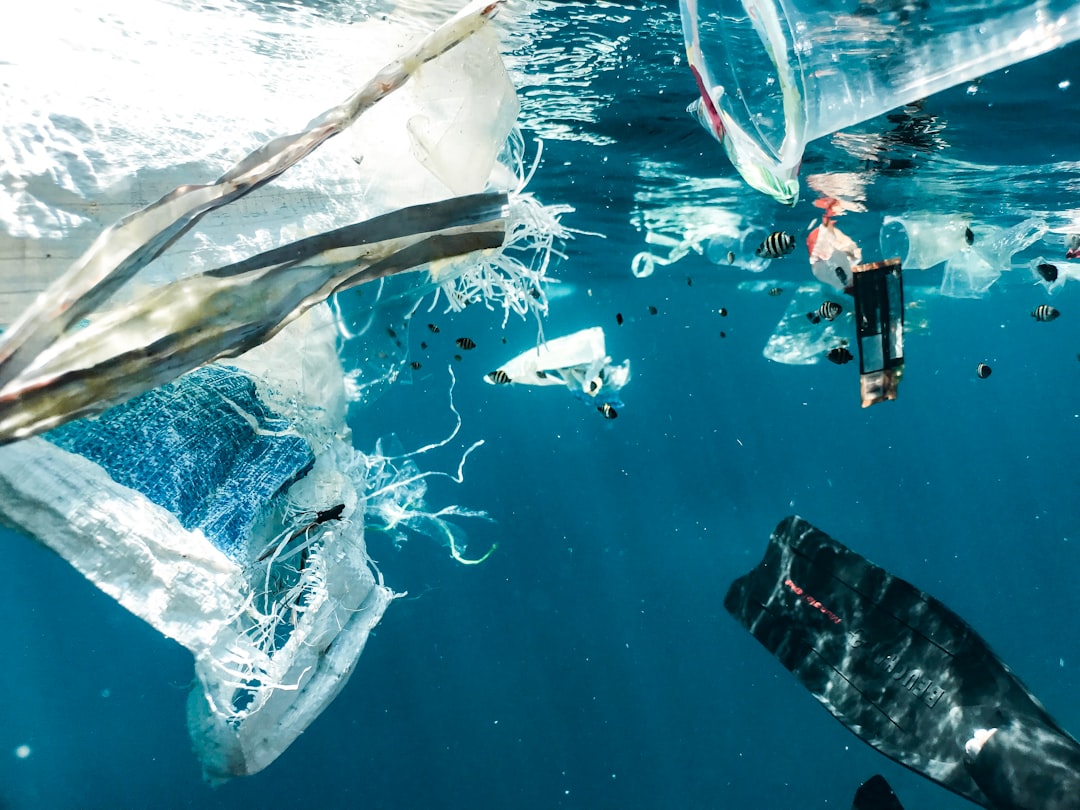- Going Zero
- Posts
- Planet vs Plastic, SEC Reporting Legislation and More
Planet vs Plastic, SEC Reporting Legislation and More

Listen to our podcast: Spotify or Apple Music
Table of Contents
This Week’s Podcast: Planet vs Plastic
This Earth Day, the theme is Planet vs Plastic. This week, we dive into plastic pollution, the myth of recycling, and China’s National Sword Policy.
We discuss the unexpected places where microplastics have invaded - from the peak of Mount Everest to the moon's surface. These tiny invaders in our environment are a stark reminder of our consumption footprint and the urgency with which we must act.
♻️ The Recycling Conundrum ♻️
Did you know that less than 5% of plastic is recycled in the United States? This chilling statistic leads us to explore the complexities of recycling and the new challenges that arose after China's National Sword Policy disrupted the global recycling game.
🚫 Navigating Through Bans and Ordinances 🚫
From San Francisco Airport's plastic bottle ban to new laws on compostable bags, we're seeing a surge in local action. But is it enough? Tune in to learn how these regulatory efforts are shaping our consumption patterns and what more needs to be done.
🕊 Earth Day Action 🕊
We're not just about talk; we're about action. Let’s honor Earth Day by taking personal and collective steps to mitigate plastic pollution. Whether you're choosing reusable containers, participating in clean-up drives, or supporting businesses with green practices, every action counts.
The SEC pauses climate reporting pending judicial review
The U.S. Securities and Exchange Commission (SEC) has put its climate reporting rules on hold pending judicial review. This decision was influenced by various legal challenges arguing against the new regulations. Despite the stay, other provisions of the rule that do not involve the direct financial impact calculations of climate events will still require companies to move forward with compliance, especially those regarding data management and governance systems. This strategy aims to ensure companies are still advancing in their capabilities to handle climate-related information responsibly and effectively.
Additionally, comparisons between the SEC's rules and other international and state-level frameworks, like the EU's Corporate Sustainability Reporting Directive (CSRD) and California's laws, highlight differences in materiality assessments and reporting requirements. These differences could significantly impact how companies approach disclosures in their voluntary and mandatory reports. For instance, while the SEC's final rule focused on investor materiality, the CSRD employs a "double materiality" perspective, requiring disclosures on both the financial impacts of climate change and the effects of a company’s operations on the environment and society. Such distinctions may drive companies to adapt their reporting strategies across different jurisdictions to meet broader investor and regulatory expectations.
Clean energy tech slowed down growth of global carbon emissions in 2023
Without clean energy technology, global carbon emissions in the last five years would have been three times larger, according to the International Energy Agency (IEA). Global carbon dioxide emissions still reached a record high in 2023. But the new analysis found that growth in clean sources had led to a “structural slowdown” in energy-related emissions. Even as energy demand increased, the expansion of solar, wind and nuclear power helped the world to avoid even greater use of fossil fuels last year.
Drinking Water Standards Coming, Monitoring PFAS
The Biden-Harris Administration issued the first-ever national, legally enforceable drinking water standard to protect communities from exposure to harmful per-and polyfluoroalkyl substances (PFAS), also known as ‘forever chemicals.’ Exposure to PFAS has been linked to deadly cancers, impacts to the liver and heart, and immune and developmental damage to infants and children.
All public water systems have three years to complete their initial monitoring for these chemicals. They must inform the public of the level of PFAS measured in their drinking water. Where PFAS is found at levels that exceed these standards, systems must implement solutions to reduce PFAS in their drinking water within five years.
Displaced By Climate Catastrophes
People have always moved as their environment has changed. But today, the climate is warming faster, and the population is larger than at any point in history.
More Americans are displaced by catastrophic climate-change-driven storms and floods and fires every year. The Internal Displacement Monitoring Centre, the global nongovernmental organization researchers rely on to measure the number of people forcibly cast out of their homes by natural disasters, counted by 2016 the numbers had begun to surge, with between 1 million and 1.7 million newly displaced people annually.
Several years after Katrina, Colette sat in a community auditorium to hear a team of professors describe the coming sea level changes to the people who lived in the parish. Colette recalls it being shown to the people living in the places that were to be affected. “You see your community is going, and they tell you that this is going to happen no matter what,” “So even if we are successful in what we do next, we will lose those places. I couldn’t believe what I saw, that this place I hold so dear and that I have such a long memory of, all of those stories are going to go.
Learn More
GoingZero.org is a not-for-profit educational resource sponsored by Emerald Ecovations. If you enjoyed this newsletter and want more sustainability content like this:
Follow us on LinkedIn (link below)
Subscribe to our podcast (links at the top)
Visit our website
